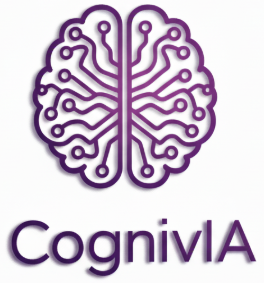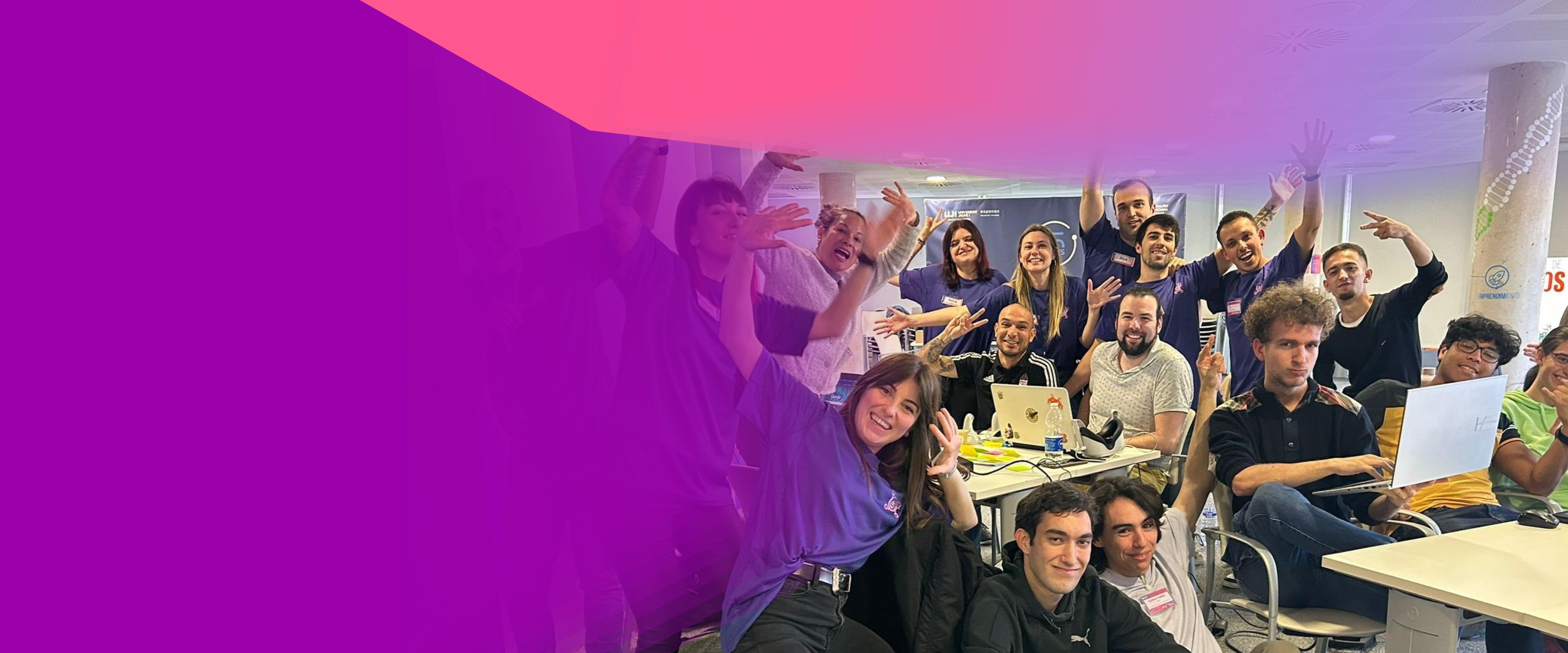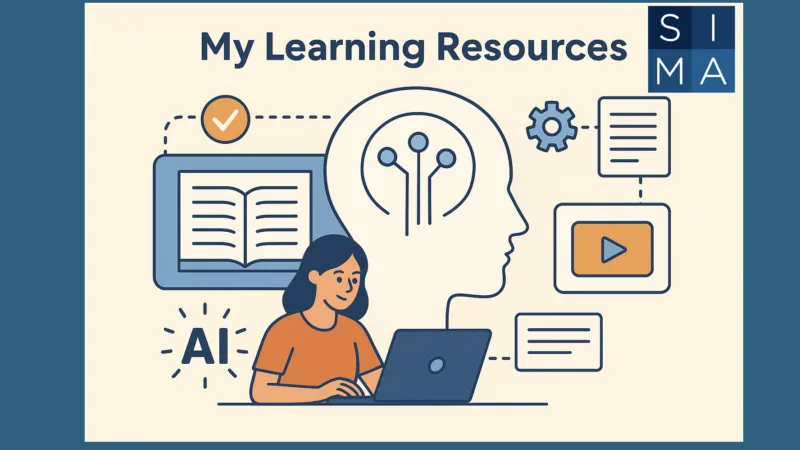LOCAL WINNER
Beginner Awards: Social impact
CognivIA
Solution details
CognivIA is an AI-based digital platform designed to simplify, personalize, and enhance the university learning experience for students and teachers. Rather than replacing educators, it acts as a smart assistant that automates repetitive academic tasks and transforms complex materials into adaptive, student-centered resources.
The system automatically analyzes course content, summarizes key ideas at different difficulty levels, generates personalized quizzes and open-ended questions, and creates dynamic study plans that evolve with students’ progress. A feedback module provides instant formative responses, while teachers can monitor comprehension trends and maintain full control over AI-generated outputs. Built on Google AI Studio and Gemini 2.5 Flash, CognivIA integrates easily with platforms such as Moodle, Teams, and Google Classroom through standard formats (JSON, CSV). Designed with ethics by design, it ensures data transparency, content ownership for educators, and accessibility for students with diverse needs.
The main objectives are to reduce teachers’ workload, improve learning personalization and motivation, and make higher education more efficient and inclusive. The implementation plan foresees a three-month development cycle: needs validation, MVP creation, pilot testing, LMS integration, and scaling. It requires a small interdisciplinary team and low operational costs (under €0.02 per output).
Foreseen barriers include institutional resistance, privacy compliance, and maintaining quality across disciplines. Success will be measured by time savings (up to 80%), comprehension gains (+40%), productivity recovery (≈€11,000 per teacher/year), and reduced dropout rates.
Ultimately, CognivIA turns AI into a transparent and ethical ally for digital education — a tool that empowers teachers, supports students, and brings the university of the future into the present.
Tweet / Slogan
CognivIA is an AI-powered assistant that simplifies and personalizes university learning — it analyzes materials, creates adaptive summaries and quizzes, and supports teachers and students alike, making education smarter, faster, and more human.

Resources
Google Ai studio, gemini 2.5 flash and other tools for design thinking ( identificayion of buyer persona, empathy mapping , 5 whys, affinity mapping scamper , Moscow)
Context
The problem CognivIA aims to solve is the growing disconnection between students, teachers, and digital learning resources within higher education. Despite increased digitalization, many students still struggle to navigate scattered materials, receive timely feedback, and identify what to focus on, while teachers face excessive workloads—preparing content, grading, and monitoring progress for large groups of students with limited time. This lack of integration leads to less personalized learning, lower motivation, and in some cases, higher dropout rates.
CognivIA directly addresses this issue by providing an AI-driven assistant that simplifies and personalizes the entire academic process. It transforms raw educational content into adaptive learning resources, generates quizzes and study plans tailored to each student’s needs, and provides teachers with clear insights into learning trends. The system turns educational data into actionable value, fostering collaboration, engagement, and efficiency.
The project aligns strongly with the DigiEduHack 2025 annual theme, which focuses on harnessing artificial intelligence for inclusive, human-centered, and sustainable education. CognivIA embodies this vision by using AI not to replace human roles but to empower both learners and educators, ensuring transparency, accessibility, and ethics by design.
In response to the hackathon’s challenge, CognivIA confronts the category of “AI for digital learning transformation” by demonstrating a concrete, scalable solution that enhances personalization, reduces digital complexity, and promotes active, data-informed learning. By integrating easily with existing systems and respecting institutional autonomy, it offers a practical path toward the future of digital education—smarter, fairer, and truly connected.
Who Benefits?
The main objectives are to reduce teachers’ workload, improve learning personalization and motivation, and make higher education more efficient and inclusive. The implementation plan foresees a three-month development cycle: needs validation, MVP creation, pilot testing, LMS integration, and scaling. It requires a small interdisciplinary team and low operational costs (under €0.02 per output).
Foreseen barriers include institutional resistance, privacy compliance, and maintaining quality across disciplines. Success will be measured by time savings (up to 80%), comprehension gains (+40%), productivity recovery (≈€11,000 per teacher/year), and reduced dropout rates.
Ultimately, CognivIA turns AI into a transparent and ethical ally for digital education — a tool that empowers teachers, supports students, and brings the university of the future into the present.
Impact
CognivIA will catalyse change in education by transforming how knowledge is created, delivered, and experienced. By integrating artificial intelligence into everyday academic processes, it makes learning more personalized, inclusive, and data-driven, while reducing repetitive workloads for teachers. This shift allows educators to focus on mentoring and creativity, turning universities into human-centered digital ecosystems.
At a social level, CognivIA promotes equal access to high-quality education. Its adaptive features support students with diverse learning needs and backgrounds, including those with learning difficulties (DSA). By providing real-time feedback and tailored study paths, it fosters engagement, reduces dropout rates, and strengthens the sense of connection between students and teachers. Moreover, by enhancing communication and collaboration, it helps create a more inclusive academic community where technology amplifies—not replaces—human interaction.
At an environmental level, CognivIA contributes to sustainability by reducing paper use, minimizing the need for printed materials and repetitive administrative processes. Its integration with digital learning environments also helps decrease unnecessary travel and resource consumption linked to traditional teaching formats.
For example, a university course using CognivIA could automatically generate digital study materials for 200 students, saving hundreds of hours of manual work and preventing thousands of pages from being printed. Teachers could instantly identify struggling learners and adapt lessons, improving outcomes with fewer resources.
In essence, CognivIA drives a cultural shift toward a smarter, fairer, and greener education system—where innovation serves people and the planet alike.
Team work
We are the ideal team to develop CognivIA because we combine direct, in-depth knowledge of the problem (as Economics students) with a structured and professional execution capability.
Our synergy is grounded in the ability to apply project-management best practices to the initiative.
The entire team has applied principles of efficiency, ROI, and process analysis to the study-related problem, ensuring that the solution is rooted in optimization logic.
The combination of skills that enabled the integration of Google AI Studio in the prototype (technical side) and the design of the predictive logic (analytical side) ensures that the product is both technically solid and contextually accurate.
We intend to explore the possibility of continuing the project, but the decision to turn CognivIA into a long-term initiative depends on the economic and financial assessment we are currently conducting.
Innovativeness
CognivIA is an innovative solution that uses artificial intelligence to simplify and personalize the university experience, not by replacing teachers but by empowering them. It analyzes course materials, generates personalized summaries and quizzes, creates adaptive study plans, and provides instant feedback — all with full human control and transparent processes.While other AI tools exist in education, CognivIA stands out for its seamless integration with existing platforms (Moodle, Teams, Google Classroom), its strong focus on ethics and accessibility, and its guarantee that content ownership remains with educators.In summary, CognivIA turns technology into an ally of teaching, making the university experience more efficient, inclusive, and truly centered on people.
Transferability
Yes, CognivIA can be adapted to other educational contexts and disciplines thanks to its flexibility and standard formats. For example, it can create personalized summaries and quizzes in language courses, medicine, or science subjects, making learning more effective and tailored.
Sustainability
Once validated, the MVP will be developed within three months, integrating with existing platforms and improving accuracy and accessibility. Pilot courses will refine the system and enable easy adoption. Mid-term, CognivIA can enhance teaching and engagement; long-term, it becomes a scalable, adaptive learning platform.


